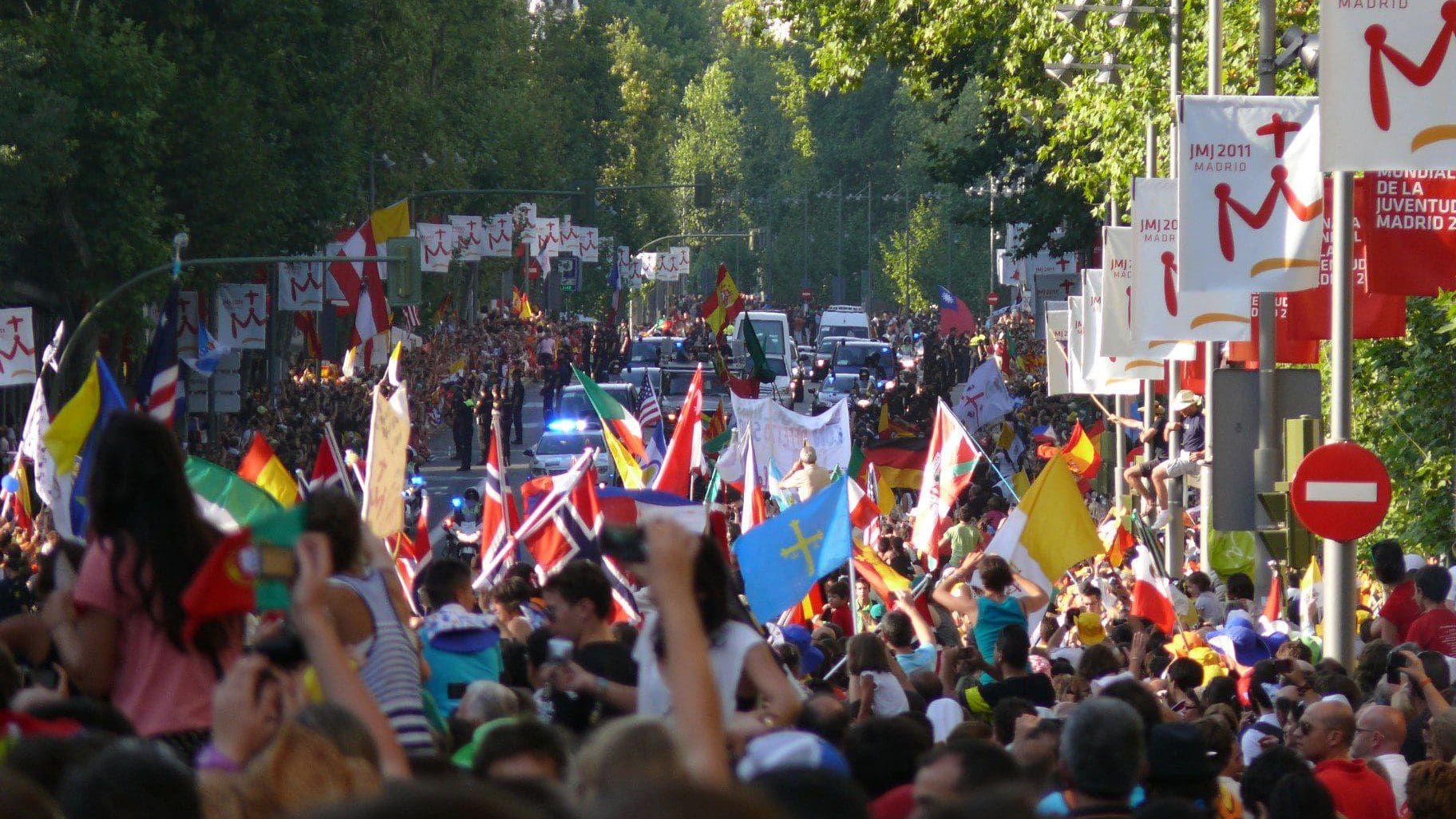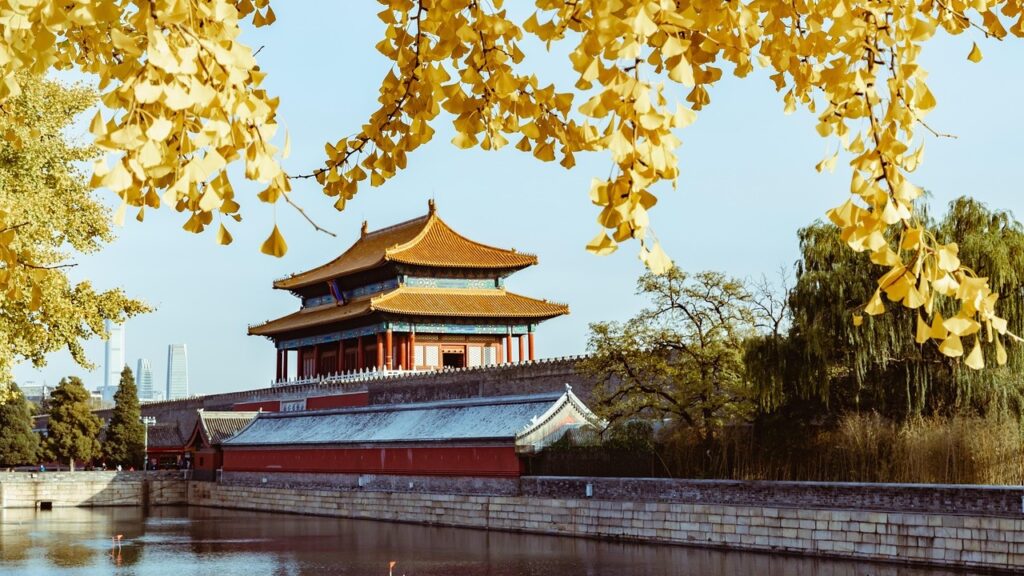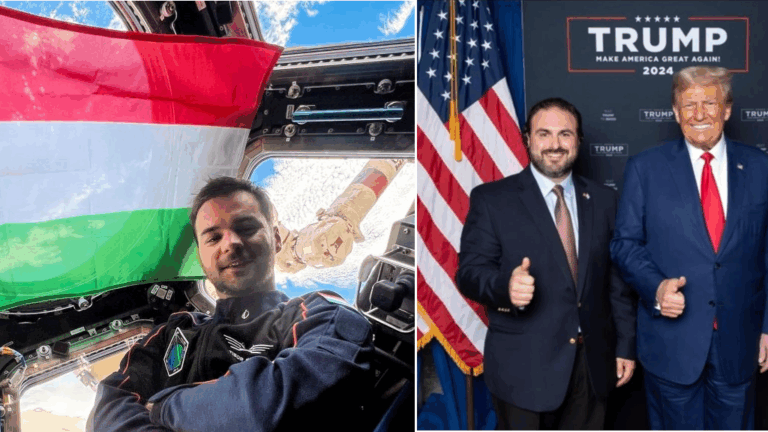This article was authored by András Jancsó and Krisztián Fenyves, and was originally published on Corvinák.
Pope Emeritus Benedict XVI died last December at the age of 95. There have been countless tributes to the former pope since his passing, highlighting his character as a scholar, either his profound faith, or the unexpectedness of his resignation. However, his relationship with young people received less attention, even though his first trip as pope led to the World Youth Day in 2005.
For Ratzinger, who had taught in higher education from the age of twenty-seven, being among university youth was a natural environment for many decades. His university classes and Sunday sermons were attended by hundreds. Peter Seewald, Ratzinger’s biographer, writes: ‘No other lecturer has had so many listeners. Nearly three hundred and fifty people have recorded Ratzinger’s lectures and at least six hundred have actually listened to them, despite the fact that he began his lectures at 8 a.m.’
Nevertheless, the international press watched with some concern Pope Benedict XVI’s first apostolic trip in 2005, which led to the World Youth Day held in Cologne. Will the elderly prelate, the ‘cardinal in armour’, be able to communicate with young people? The World Day was first launched by Pope John Paul II in 1984 as a one-off event, but thanks to the enormous enthusiasm of young people, it has been held every two or three years ever since. The 1995 event in the Philippines was attended by five million young people and is regarded as one of the largest peaceful events in world history.
As the Piarist monk László Lukács pointed out in his seminal work: ‘The world press, of course, watched with curious eyes as Pope Benedict found a common voice with millions of young people, for this was the first time that the scholar-professor had emerged from his solitude to appear before a huge crowd, consisting mostly of young people.’ There is no doubt that his academic career, which lasted nearly 30 years, was in many ways brought to a close when he was consecrated bishop in 1977. However much Ratzinger tried to return to the academic world, by the time of his election as Pope in 2005 he had been away from the university cathedra and from university youth for almost 30 years.
During the trip to Germany, however, he defied all expectations to the contrary and approached young people with the most natural openness. As Father Lukács put it: ‘Pope Benedict was captivated by the enthusiasm and youthful impetus of young people, and he responded to their manifestations with increasing ease and spontaneity.’ This assessment is in line with what the expectations of the Pope were, who said this on 18 August 2005 after landing at Cologne-Bonn airport:
‘That so many young people have come to meet the Successor of Peter is a sign of the Church’s vitality. I am happy to be with them, to confirm their faith and, God willing, to enliven their hope. At the same time, I am sure that I will also receive something from the young people, the fact that their enthusiasm, their sensitivity and their readiness will sustain me and give me the courage to continue my journey in the service of the Church as the Successor of Peter and to face the challenges of the future.’
His outstanding attention to the young generation transpires even from these few lines. This attention is also evident in his address to young people on the banks of the Rhine, where he pointed to Jesus Christ as a point of reference for young people seeking orientation in life: ‘Dear young people, the happiness you are seeking, the happiness you have a right to enjoy has a name and a face: it is Jesus of Nazareth, hidden in the Eucharist. Only he gives the fullness of life to humanity!’ And in his meeting with the German bishops, he stressed the special role of young people: they are the ones who can help and strengthen the priestly vocation. He said: ‘Once again young people are providing us, their pastors, with a salutary stimulus, for they are asking us to be consistent, united and courageous.’
Pope Benedict XVI followed up on the 2005 Cologne World Youth Day with the 2008 meeting in Australia and the 2011 meeting in Madrid, where some estimates put the number of attendees at nearly two million. He greeted the young people in Sydney and
reminded them of ‘the innate dignity of all human life from conception to natural death.’
Pope Benedict said that only on this basis can we authentically strive for non-violence, sustainable development, justice, peace and care for the environment, which are ‘of vital importance for humanity’. In Sydney, he also participated in the vigil with young people, where, at the end of his reflection on the Holy Spirit, he encouraged them to mature their faith through their studies, work, music, sport and the arts, because life is not just the pursuit of success: ‘To be truly alive is to be transformed from within, open to the energy of God’s love. In accepting the power of the Holy Spirit you too can transform your families, communities and nations.’ He reaffirmed this call at the next day’s Mass: ‘Dear young friends, the Lord is calling you to be prophets of this new age, messengers of his love, drawing people to the Father and building a future of hope for all humanity.’
In Madrid, Pope Benedict addressed young people at the closing Mass of the World Meeting. During the Mass, a passage from the Gospel of Matthew was read, in which Jesus asks his disciples, ‘Who do people say the Son of Man is?” (Mt 16,13). There are different opinions: some people say that Jesus is John the Baptist, Elijah, Jeremiah or even one of the prophets. Jesus then asks the disciples’ personal conviction: ‘Who then do you say that I am?’ The apostle Peter confesses, ‘You are the Christ, the Son of the living God.’ ‘Dear young people, today Christ is asking you the same question which he asked the Apostles: “Who do you say that I am?’ Respond to him with generosity and courage, as befits young hearts like your own.’ In the Gospel passage quoted, Jesus responds to the apostle’s reply, ‘You are Peter, and on this rock I will build my church.’ And Pope Benedict in his teaching highlights the crucial importance of this for young people. For today, when many people profess religion ‘in their own way’, the Pope makes it clear that the Church, as he sees it, is not simply a human institution, but is linked to God. He therefore encourages young people to follow Jesus with the Church:
‘But let me also remind you that following Jesus in faith means walking at his side in the communion of the Church. We cannot follow Jesus on our own. Anyone who would be tempted to do so “on his own”, or to approach the life of faith with that kind of individualism so prevalent today, will risk never truly encountering Jesus, or will end up following a counterfeit Jesus.’
All of the above-cited remarks that the pope made at the various World Youth Day events demonstrate that Pope Benedict XVI was indeed also the Pope of young people. The pictures taken at his funeral, where hundreds of young priests and lay people prayed for the dead Pope Emeritus, bear witness to this. It is not only these few speeches that are addressed to young people. He also played a major role in the creation in 2011 of a youth version of the Catechism of the Catholic Church, the so-called Youcat, which was drafted under his presidency in 1992. His theological and philosophical work can be a guide for all young people.
Click here to read the original article






